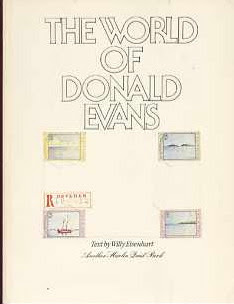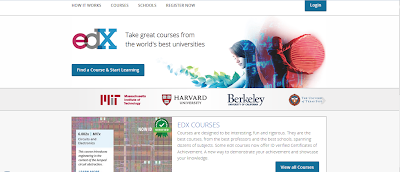Of Protests, Divestments and Boycotts: Nestle, Sodastream, Woody Allen and Scarlett Johanssen
I'm not an activist. I'm just not the type who would go out there to protest in public about situations I dislike. The first time I was exposed to political action was perhaps on the Wellesley College Campus where I was persuaded by some students to donate my meal tickets to Oxfam and forego eating a meal for a couple of days to help those in the world who are hungry. I don't know if my action helped, but it felt right to do my part.
In 1983, I spent my junior year in Scotland at the University of Edinburgh. I lived in an apartment with four local Scottish students and came to realize how politically aware and active the European students were. I answered a phone call reminding my flatmates to attend a meeting of the "Anti-Apartheid Society." Embarrassingly, I didn't even know what apartheid was at the time. No teacher or students in my American high school or college ever taught or mentioned the situation in South Africa. My flatmates were also actively involved in the "Free Nelson Mandela" movement, and double embarrassingly, that was the first time I even learned who Nelson Mandela was.
My Scottish flatmates were also boycotting products made by Nestle Corporation. Why? Because at the time, Nestle sold baby formula to mothers of third world countries by persuading them to buy costly formula as if the formula was more nutritious than mothers' milk, which it wasn't. Babies were dying of malnutrition because mothers who couldn't afford the formula diluted it to feed their babies. Well, my flatmates convinced me to not purchase Nestle products such as chocolates or coffee. I was amused, but did do as requested, and ate Cadbury chocolates instead. (My favorite was the milk chocolate bar with raisins).
The few years after I returned to the United States, the student and academic movement to convince colleges, universities and governments to divest from South Africa in protest of apartheid and the continued imprisonment of Nelson Mandela intensified. (Or, perhaps I just became more aware of the movement). I remember signing petitions to ask Wellesley (or was it Columbia University by then?) to divest from South Africa. I don't remember what the outcome of the student petition was, and I seem to remember the United States refused to divest. Yet I can still recall the emotion I felt a few years later when Nelson Mandela was released from the South African prison, and how apartheid was finally dismantled. I learned that overwhelming international grassroots pressure can effect governments to make changes for what is right. And this applies to actions against corporate behavior too. I remember that Nestle finally agreeing to adjust its strategy with regards to baby formula marketing.
Now, things comes to a full circle with Oxfam, the first organization I supported to end world hunger. Oxfam and its famous actress spokeswoman Scarlett Johanssen ended their relationship over Johanssen's promotion of SodaStream, a company with its base in the occupied territory of the Palestinian West Bank and employs Palestinians there. I am disgusted by Israel's disregard of Palestinians' rights in the occupied territories, yet to my dismay, I also own a SodaStream soda maker. Once aware of this situation, I realized that there is only one course of action for me to take: I tossed out my SodaStream, and as with my 20 plus years of boycotting Woody Allen movies (that's another story), I prepared myself to never watch a ScarJo movie again. (Sad to say, I loved watching the Avengers). Call me naive, but I think I can choose to not spend my money to enrich companies or people whose actions I can't believe in. After all, there are plenty of other sodas I can drink, and other actresses and movies I can watch. It's soft drinks and entertainment after all. I think the Huffington Post refers to stance such as mine as an "ethical consumption choice". LOL
Am I doing enough? Probably not. Maybe I'm the only one who is made to feel better about myself. But if enough people who think like me do the same, maybe things will change.
In 1983, I spent my junior year in Scotland at the University of Edinburgh. I lived in an apartment with four local Scottish students and came to realize how politically aware and active the European students were. I answered a phone call reminding my flatmates to attend a meeting of the "Anti-Apartheid Society." Embarrassingly, I didn't even know what apartheid was at the time. No teacher or students in my American high school or college ever taught or mentioned the situation in South Africa. My flatmates were also actively involved in the "Free Nelson Mandela" movement, and double embarrassingly, that was the first time I even learned who Nelson Mandela was.
 |
| During height of the Free Nelson Mandela Movement. |
My Scottish flatmates were also boycotting products made by Nestle Corporation. Why? Because at the time, Nestle sold baby formula to mothers of third world countries by persuading them to buy costly formula as if the formula was more nutritious than mothers' milk, which it wasn't. Babies were dying of malnutrition because mothers who couldn't afford the formula diluted it to feed their babies. Well, my flatmates convinced me to not purchase Nestle products such as chocolates or coffee. I was amused, but did do as requested, and ate Cadbury chocolates instead. (My favorite was the milk chocolate bar with raisins).
The few years after I returned to the United States, the student and academic movement to convince colleges, universities and governments to divest from South Africa in protest of apartheid and the continued imprisonment of Nelson Mandela intensified. (Or, perhaps I just became more aware of the movement). I remember signing petitions to ask Wellesley (or was it Columbia University by then?) to divest from South Africa. I don't remember what the outcome of the student petition was, and I seem to remember the United States refused to divest. Yet I can still recall the emotion I felt a few years later when Nelson Mandela was released from the South African prison, and how apartheid was finally dismantled. I learned that overwhelming international grassroots pressure can effect governments to make changes for what is right. And this applies to actions against corporate behavior too. I remember that Nestle finally agreeing to adjust its strategy with regards to baby formula marketing.
Now, things comes to a full circle with Oxfam, the first organization I supported to end world hunger. Oxfam and its famous actress spokeswoman Scarlett Johanssen ended their relationship over Johanssen's promotion of SodaStream, a company with its base in the occupied territory of the Palestinian West Bank and employs Palestinians there. I am disgusted by Israel's disregard of Palestinians' rights in the occupied territories, yet to my dismay, I also own a SodaStream soda maker. Once aware of this situation, I realized that there is only one course of action for me to take: I tossed out my SodaStream, and as with my 20 plus years of boycotting Woody Allen movies (that's another story), I prepared myself to never watch a ScarJo movie again. (Sad to say, I loved watching the Avengers). Call me naive, but I think I can choose to not spend my money to enrich companies or people whose actions I can't believe in. After all, there are plenty of other sodas I can drink, and other actresses and movies I can watch. It's soft drinks and entertainment after all. I think the Huffington Post refers to stance such as mine as an "ethical consumption choice". LOL
Am I doing enough? Probably not. Maybe I'm the only one who is made to feel better about myself. But if enough people who think like me do the same, maybe things will change.


Comments
Post a Comment